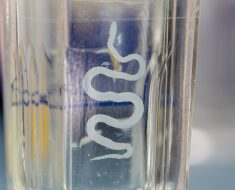A study involving researchers from The Australian National University (ANU) has found that platelets can attack and kill malaria parasites—reducing the number of parasites circulating in the blood.
The study, which has just been published in the prestigious journal Blood, was led by Associate Professor Brendan McMorran at ANU and Professor Nick Anstey at Darwin’s Menzies School of Health Research.
The team studied 376 people, with and without malaria, from Indonesia and Malaysia.
They found that platelets bind to and kill parasites in patients infected with each of the major malaria parasite species—Plasmodium falciparum, P. vivax, P. malariae and P. knowlesi.
“This is the first direct evidence of platelet protection in any infectious disease in humans,” said Associate Professor Brendan McMorran.
The process of killing the parasites is triggered by a toxic platelet peptide called PF4.
The group’s findings suggest PF4-based peptides could be potential candidates for malaria treatment in the future.
“My lab has also just reported on the design of such a PF4 peptide and how it may be suited for malaria treatment,” said Associate Professor McMorran.
“We had known from our previous studies that PF4 was important for platelets to kill parasites under laboratory conditions but it is very exciting to now discover the molecule is also important in the actual human disease.”
The study found platelets may kill around 20 per cent of circulating Plasmodium parasites in clinical malaria, and in P. vivax this may be as high as 60 per cent.
Source: Read Full Article





